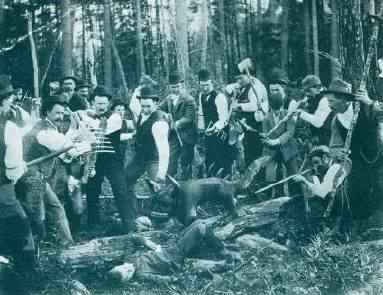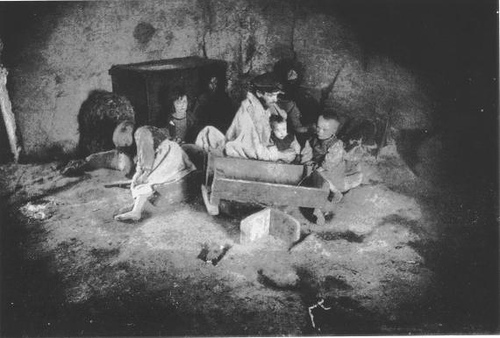When singer Warren Zevon (“Werewolves of London”) was diagnosed with cancer in 2002, he said he just hoped to live long enough to see the next James Bond movie.
He did.
The film was called Die Another Day.
When singer Warren Zevon (“Werewolves of London”) was diagnosed with cancer in 2002, he said he just hoped to live long enough to see the next James Bond movie.
He did.
The film was called Die Another Day.
Every year since 1949, a mysterious figure has visited the grave of Edgar Allan Poe on the author’s birthday, Jan. 19.
Early in the morning, a black-clad figure with a silver-tipped cane enters the Westminster Hall and Burying Ground in Baltimore, goes to Poe’s grave, raises a toast of cognac, and leaves behind three red roses.
He wears a black coat and hat and obscures his face, so his identity is unknown, but in 1993 he left a note saying “The torch will be passed.” In 1999, a second note said that the toaster had died … but since then a younger person has apparently taken his place.
“All that we see or seem,” Poe wrote, “is but a dream within a dream.”

In 1896, to draw tourists to Rhinelander, Wis., Eugene Simeon Shepard staged an encounter with a hodag, a legendary creature with “the head of a bull, the grinning face of a giant man, thick short legs set off by huge claws, the back of a dinosaur, and a long tail with a spear at the end.”
According to the story, Paul Bunyan’s ox had to be burned for seven years to cleanse its soul of all the profanity that local lumberjacks had hurled at it. The hodag rose from its ashes.
There’s no telling whether anyone bought this, but the hodag is now the official mascot of Rhinelander High School.
Sightings of the “Loveland frog,” a humanoid creature with the face of a frog:
Interestingly, horror writer H.P. Lovecraft had described similar creatures in a story written in 1931:
I think their predominant colour was a greyish-green, though they had white bellies. They were mostly shiny and slippery, but the ridges of their backs were scaly. Their forms vaguely suggested the anthropoid, while their heads were the heads of fish, with prodigious bulging eyes that never closed. At the sides of their necks were palpitating gills, and their long paws were webbed. They hopped irregularly, sometimes on two legs and sometimes on four. I was somehow glad that they had no more than four limbs. Their croaking, baying voices, clearly used for articulate speech, held all the dark shades of expression which their staring faces lacked.
Maybe he knew more than we realized.
If Hélène Smith wasn’t a real psychic, she was a remarkably ambitious fake — she claimed to be able to visit Mars:
“How funny, these cars! Hardly any horses or people that are on the move. Imagine different kinds of armchairs that slide but don’t have wheels. It is the tiny wheels that produce the sparks. People sit in their armchairs. Some of them, the larger ones, hold four to five people. To the right of the armchairs a kind of handle stick is at tached, fitted with a button that one presses with the thumb to put the vehicle in motion. There are no rails. One also sees the people walking. They are built like us and hold onto each other with the little finger. The clothing is the same for both sexes: a long blouse tight around the waist, very large trousers, shoes with very thick soles, no heel and of the same colour as the rest of the outfit which is in shammy, white with black designs.”
Between 1894 and 1901 she gave 60 séances, detailing the Martian language and eventually inspiring a book, From India to the Planet Mars, by University of Geneva psychologist Theodor Flournoy.
Matisse wrote, “There are always flowers for those who want to see them.”
On Nov. 28, 1999, a man in his mid-20s wandered into an emergency room in Toronto. His nose was broken, his wallet was missing, and he carried no identification. He claimed not to know who he was, and staff diagnosed him with post-concussive global amnesia.
“Mr. Nobody” had a slight Yorkshire accent, according to language experts, and he spoke fluent French and Italian and could read Latin. After his release he began living in Canada, changing his name and residence often.
The story ends even more strangely. In June 2001, a gay porn actor named Sean Spence claimed the mysterious man was really a French model named Georges Lecuit. Mr. Nobody was jailed and disappeared shortly after his release. Now both he and his wife have disappeared.
Mark Twain reports on a student who was asked to analyze this stanza from Walter Scott’s “The Lady of the Lake”:
Alone, but with unbated zeal,
The horseman plied with scourge and steel;
For jaded now and spent with toil,
Embossed with foam and dark with soil,
While every gasp with sobs he drew,
The laboring stag strained full in view.
The student wrote:
The man who rode on the horse performed the whip and an instrument made of steel alone with strong ardor not diminishing, for, being tired from the time passed with hard labor overworked with anger and ignorant with weariness, while every breath for labor he drew with cries full or sorrow, the young deer made imperfect who worked hard filtered in sight.
Twain’s comment: “I see, now, that I never understood that poem before. I have had glimpses of its meaning, it moments when I was not as ignorant with weariness as usual, but this is the first time the whole spacious idea of it ever filtered in sight. If I were a public-school pupil I would put those other studies aside and stick to analysis; for, after all, it is the thing to spread your mind.”

“… six famished and ghastly skeletons, to all appearance dead, huddled in a corner, their sole covering what seemed to be a ragged horse cloth, and their wretched legs hanging about, naked above the knees. I approached in horror and found by a low moaning that they were alive, they were in fever — four children, a woman and what had once been a man. … In a few minutes I was surrounded by at least 200 of such phantoms, such frightful spectres as no words can describe. By far the greater number were delirious either from famine or fever. … Within 500 yards of the Cavalry Station at Skibbereen, the dispensary doctor found seven wretches lying, unable to move, under the same cloak — one had been dead many hours, but the others were unable to move, either themselves or the corpse.”
— From a letter by a Mr. O’Brien to the Duke of Wellington describing a visit to Skibbereen during the Irish potato famine, Dec. 17, 1846
“No human thing is of serious importance.” — Plato
During aerial surveys in 1992, German forestry students were surprised to see a giant swastika north of Berlin. Apparently locals had planted larches in that pattern in 1937, presumably to prove their loyalty to the party. After the war it was forgotten, as the effect could be seen only from the air, and only as the leaves changed.
When the giant Nazi symbol was rediscovered, though, Brandenburg authories worried that it would attract right-wing extremists — so they started cutting down the larches. In the end, 68 of the 100 trees had to fall before the effect was obscured. There’s an irony here, somewhere …